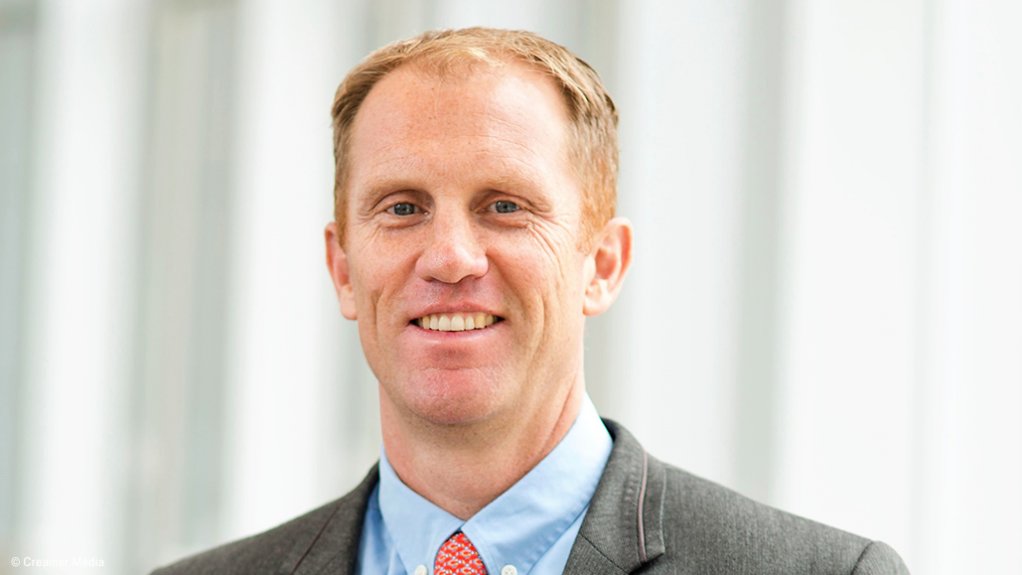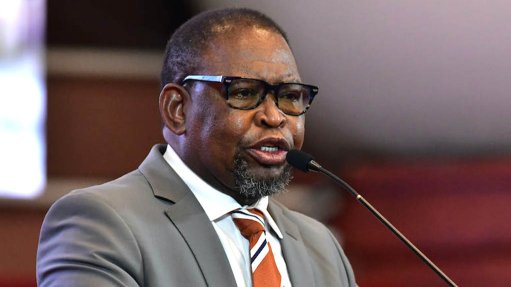Real progress being made against loadshedding in recent months, says Energy Council CEO
The number of hours of loadshedding in South Africa has been cut by 67% over the past three-and-a-half months, Energy Council of South Africa CEO James MacKay highlighted on Monday evening. He was participating in an event in Cape Town, hosted by UK innovation agency Innovate UK, and UK International Development, ahead of the Africa Energy Indaba. Loadshedding is the South African term for rotating scheduled power cuts, due to lack of generating capacity, imposed by national electricity utility Eskom.
One of the reasons for the significant reduction in loadshedding hours has been the secondment, by the business sector, of experienced engineers to Eskom power stations. Further, renewable energy capacity in the country has increased rapidly.
He expressed confidence that the country was solving the loadshedding problem. The development of a large private-sector renewable energy generation sector was irreversible. The concern was, rather, whether or not this expansion in renewables could stall. Many thought that transmission grid constraints could restrict the further development of renewable energy in the country. He did not agree. He did not think that the transmission network would be a problem.
However, even when loadshedding had been solved, a lot of work would still need to be done to create a network which had long-term stability, he averred.
And then there was climate change. “The target is net-zero [carbon emissions],” he stressed. “We need to get to net zero.” (All members of the Energy Council have “signed up for” net zero and all new members must also do so, he pointed out.)
“We have to think about energy security and energy sustainability,” added MacKay. Sustainability did not refer only to climate change, but also to economic and social sustainability. The country’s energy sector had to solve loadshedding, reduce emissions, be socially responsible, develop skills, while being economically viable, with bankable projects. In other words, the country had both to solve loadshedding and achieve sustainability.
The single biggest problem was the country’s municipalities. Most of them were making no attempt to address loadshedding or sustainability (unlike, for example, Cape Town). “We have 167 municipalities without a plan,” he affirmed. “We need a model for municipalities.”
The Energy Council is a business representative organisation, embracing both private-sector and State-owned companies (including Eskom).
Article Enquiry
Email Article
Save Article
Feedback
To advertise email advertising@creamermedia.co.za or click here
Press Office
Announcements
What's On
Subscribe to improve your user experience...
Option 1 (equivalent of R125 a month):
Receive a weekly copy of Creamer Media's Engineering News & Mining Weekly magazine
(print copy for those in South Africa and e-magazine for those outside of South Africa)
Receive daily email newsletters
Access to full search results
Access archive of magazine back copies
Access to Projects in Progress
Access to ONE Research Report of your choice in PDF format
Option 2 (equivalent of R375 a month):
All benefits from Option 1
PLUS
Access to Creamer Media's Research Channel Africa for ALL Research Reports, in PDF format, on various industrial and mining sectors
including Electricity; Water; Energy Transition; Hydrogen; Roads, Rail and Ports; Coal; Gold; Platinum; Battery Metals; etc.
Already a subscriber?
Forgotten your password?
Receive weekly copy of Creamer Media's Engineering News & Mining Weekly magazine (print copy for those in South Africa and e-magazine for those outside of South Africa)
➕
Recieve daily email newsletters
➕
Access to full search results
➕
Access archive of magazine back copies
➕
Access to Projects in Progress
➕
Access to ONE Research Report of your choice in PDF format
RESEARCH CHANNEL AFRICA
R4500 (equivalent of R375 a month)
SUBSCRIBEAll benefits from Option 1
➕
Access to Creamer Media's Research Channel Africa for ALL Research Reports on various industrial and mining sectors, in PDF format, including on:
Electricity
➕
Water
➕
Energy Transition
➕
Hydrogen
➕
Roads, Rail and Ports
➕
Coal
➕
Gold
➕
Platinum
➕
Battery Metals
➕
etc.
Receive all benefits from Option 1 or Option 2 delivered to numerous people at your company
➕
Multiple User names and Passwords for simultaneous log-ins
➕
Intranet integration access to all in your organisation



















